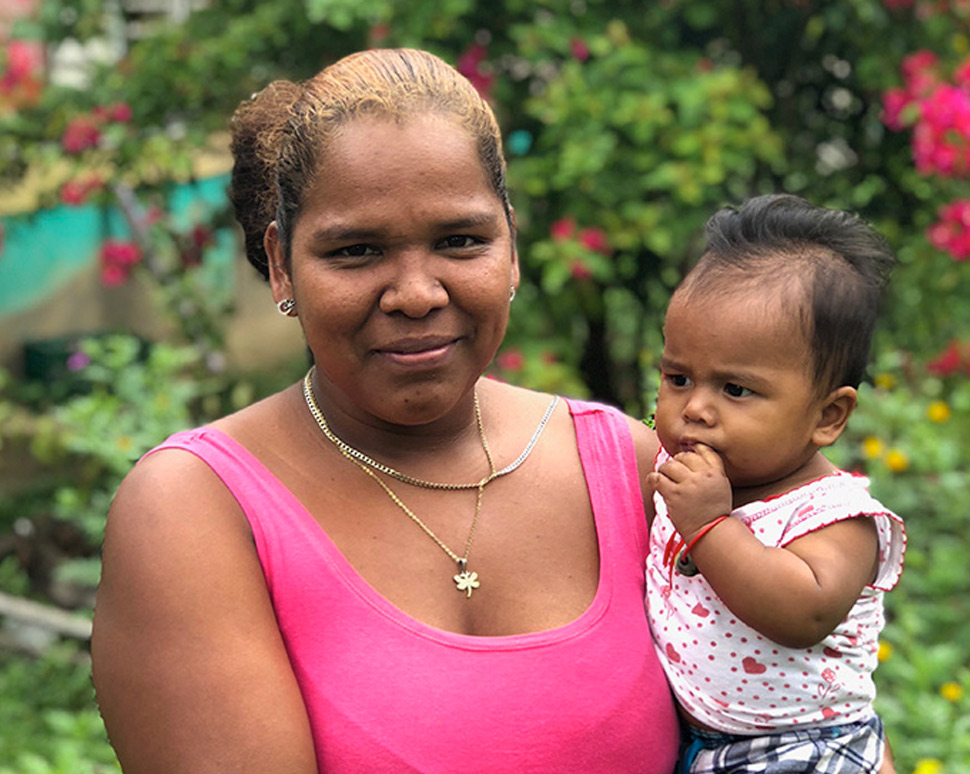
Milking Infants’ First 1,000 Days
Evaly and other mothers are finding ways to overcome many of the logistical challenges of farm work so they can breastfeed their babies for a longer period. The Nicaragua Río Coco program is focusing on maternal and child nutrition and the first 1,000 days of babies’ lives, the most critical for the healthy development of their bodies and minds.
Evaly explains, “A lot of us start to feed our children solid food at three to six months. We have to leave them with neighbors while we go to work in our fields, which are far from home. They can’t give them breast milk, so they feed them mashed potatoes or a little porridge. We’re learning through this program that infants get much better nutrition from our milk, so we’re eager to make any changes that will keep our little ones healthier.”
Local partner Acción Médica Cristiana teaches women how to plant kitchen gardens close to their homes. A community health agent comes to talk to them about nutrition, and expectant mothers and families with young children actively seek her advice. With workshops on cooking and how to combine the vegetables they grow, the health of mother and child alike improves. Participants also learn how to market and sell their surplus produce, and the extra income is helping meet other needs.
Evaly says she has a much better understanding of the nutritional importance of breastfeeding, when and how to start a baby on solid food, and what to do if a child is malnourished. Her daughter, Kati, is starting off healthy because she’s been putting into practice everything she’s learned.
Caption: 1) Evaly and daughter Kati
Photo credit: Laura Curkendall, CWS
Nicaragua Río Coco Program
Led by Church World Service and Local Partner Acción Médica Cristiana
17 communities, 1,325 households, 10,370 individuals
